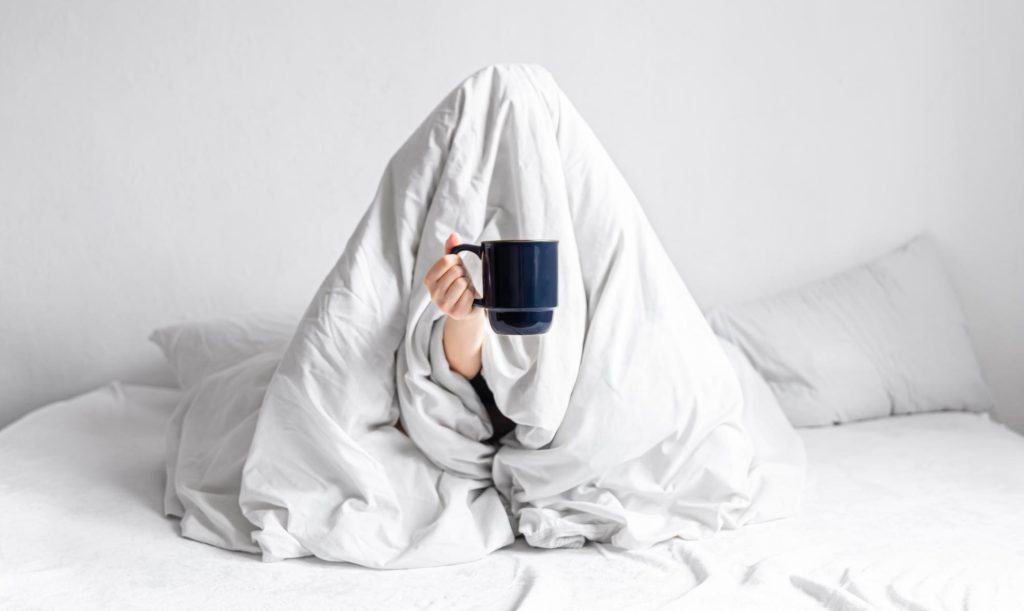Bedding / Sleep Advice
How Many Hours of Sleep Do I Need?
Getting the right amount of sleep is vital for our health. Without it, we run the risk of developing chronic conditions like diabetes, heart disease, and obesity. A lack of sleep also reduces the effectiveness of our immune system, makes us more likely to experience mood swings, and impairs many brain processes like decision-making and attention.
Yet, it’s not always easy knowing how many hours of sleep we need, especially as the recommendations change as we age.
In this article, we will explore the importance of quality over quantity, the recommended amount of sleep we should get each night, and the factors that affect our sleep needs.
Armed with this knowledge, you can be sure to get exactly the right amount of sleep for you!
Is Sleep Quality More Important Than Quantity?

When it comes to getting a full night’s rest, quality always trumps quantity. Research from the Harvard Medical School suggests that we have four key sleep stages. One of these is REM (or rapid eye movement) sleep, a stage that’s vital for memory, attention, and general mental restoration. When we’re not getting good-quality sleep, we miss out on REM sleep.
So, it doesn’t matter if you’re getting 8, 9 or even 10 hours of sleep – if your sleep quality is lacking, you’ll still feel miserable and groggy in the mornings.
How Many Hours of Sleep Do I Need?

The National Sleep Foundation has released recommendations so we can rest easy knowing how many hours of sleep we should be getting.
For older adults over the age of 65, between 7 and 8 hours is enough. This is similar for young adults and adults between the ages of 18 and 64, who need 7 – 9 hours of sleep.
Teenagers typically require more sleep due to the physiological changes this stage involves, but 8 to 10 hours should suffice.
For school-aged kids between the ages of 6 and 13, a minimum of 6 hours and a maximum of 11 hours works best.
For preschoolers aged 3 to 5, the National Sleep Foundation suggests that 10 to 13 hours of sleep is optimal. While for toddlers aged 1 to 2, 11 to 14 hours is preferable.
For tiny infants of 4 to 11 months, who are growing and changing every single day, 12 to 15 hours is optimal, whereas newborns aged 0 to 3 months need a whopping 14 to 17 hours!
But let’s make one thing clear – these recommendations are just that: recommendations. They don’t take into account everyone’s individual needs as well as factors like people’s lifestyle, genetics, and overall health. So, without further ado, let’s take a look at some of the factors that may influence how many hours of sleep we each need.
Factors Affecting How Much Sleep You Need
Sleep isn’t one-size-fits-all – we each have different needs. Some factors have been found to play a particularly important role in the amount of sleep we need.
The first of these is our activity levels. If we are highly active for most of the day, chances are we’ll need more sleep. Why? Because our bodies need time to recover – for our muscles to repair themselves and us to replenish our energy levels for the days to come.
Then, there are stress levels. When we’re stressed, our bodies may crave sleep more, as we need the time to rest and rejuvenate. However, unfortunately, stress can also make it difficult for some of us to sleep, creating a catch-22 situation.
Furthermore, if we’re unwell or suffering from a serious health condition, our bodies often need more sleep, as sleep can serve an important reparative function, helping our immune systems work their magic while we’re resting.
And we already mentioned sleep quality. If we’re getting 6 hours of high-quality sleep, we may not need a full 7, 8 or 9 hours of sleep – 6 may suffice.
Final Verdict on How Much Sleep We Need
Sleep protects our bodies in more ways than one. Yet, many of us continue to get less sleep than recommended. For some of us, this may be because we don’t even know how much sleep we should be getting. Now you know how much sleep is recommended for you, it makes this task a little easier.
However, we’re not blind to the fact that knowing how much sleep you need is one thing, and actually getting it is another. However, by considering the factors affecting the sleep you need and thinking about sleep quality, you can make strides to get the recommended amount of sleep for you.

